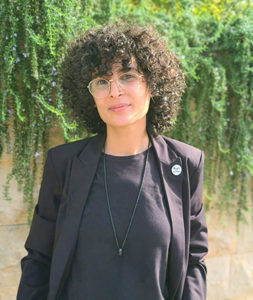Featured
Psychology in the Arab Region: A Critical Perspective on Challenges and Ways Forward
Global Spotlight

More than 80% of the world’s population lives in countries other than the United States, Canada, and Europe, which dominate psychological science nonetheless. The Global Spotlight series, an extension of the “Psychological Science Needs the Entire Globe” series that launched in 2021, is a small step toward closing that gap. Authors across the globe—in Africa, South America, South and Southeast Asia, and other regions that have long been underrepresented in the research community—share unique and personal perspectives on the issues affecting their work and careers. In providing these on-the-ground narratives, we hope to illuminate concrete challenges and opportunities alike involving this truly global science.
Regional overview • Research challenges • Authors’ note • Examples of research production • Recommendations
At the time of this writing, some of us Arab social psychologists are preparing to travel to an international political psychology conference. While we look forward to meeting our international colleagues, we are particularly excited to connect with Arab colleagues. Since regional psychology conferences are practically nonexistent, international conferences provide unique opportunities to connect with one another. What is more, though some of us are Lebanese and Palestinian, we cannot visit each other because of the continuing Israeli occupation of Palestine and the resulting absence of diplomatic ties between Lebanon and Israel (Sebaali, 2020). It is also hard for us to meet because many of us are scattered around the world. Some are pursuing doctorates in Western countries because of limited local training options; others are looking for better opportunities in safer and more stable environments away from wars or occupation or economic meltdowns.
For example, the psychology department at the American University of Beirut (AUB) in Lebanon, a leading university in the region, recently saw half of its full-time academic staff leave and had to freeze its graduate programs. Lebanon is suffering from one of the most severe economic crises in the world: Its local currency devalued by more than 90% in less than 2 years (World Bank, 2021), leading to massive impoverishment and a significant brain drain (Economic and Social Commission for Western Asia, 2021). The economic collapse is significantly affecting access to education in the country (e.g., Kadi, 2021), which ultimately restricts psychological training opportunities as well, despite rising demand for mental health and psychology experts (Farran, 2021).
Beyond economic crises, political violence also remains a significant threat in the region. In May of last year, two fellow Palestinian colleagues working in mental health care in Gaza were killed by the Israeli military in airstrikes that flattened their homes. Psychologist Raja’ Abu Al-Ouf died under the rubble with her children and relatives, as did Dr. Moueen Al Aloul, one of few specialized neurologists in Gaza (Stepansky, 2021; Shaikhouni, 2021).
These are but small snapshots of life for psychologists in the Arab region. In this article, we delve more into the realities of doing psychology for many students, scholars, and practitioners in this part of the world, and we provide some recommendations for advancing psychological science in the Arab region.
Read the first part of the Global Spotlight series, “P is for Problem, Publish, and Psychology: Multilingual Scholars and the Challenges of Publishing in English.”
Regional overview
The Arab region formally consists of the 22 member states of the Arab League, located on the Asian and African continents and making up around 5% of the global population (around 450 million inhabitants; World Bank, n.a.). It is sometimes further divided into loosely defined subregions based on geographic, economic, or linguistic boundaries. The Gulf countries in the Arabian Peninsula are the richest in the region and comprise Saudi Arabia, Kuwait, Bahrain, Oman, the United Arab Emirates, and Qatar. These oil-rich monarchies include some of the world’s wealthiest countries. The exception is Yemen, one of the world’s poorest countries, which is suffering one of the world’s worst humanitarian crises following a civil war pitting a U.S.-backed, Saudi-led military coalition against Iranian-backed Houthi rebels (United Nations, 2022). The Mashriq subregion, also known as the Levant, includes Lebanon, Syria, Palestine, Jordan, and Iraq, many of which suffered foreign military interventions, occupations, and large population displacements. The North Africa subregion includes Egypt, the most populous Arab country, along with Sudan, Algeria, Tunisia, Libya, Morocco, and the disputed Western Sahara. Other African Arab states include Mauritania, Somalia, Djibouti, and the Comoros. Though these groupings provide a convenient way of dividing the region, they mask considerable heterogeneity within and between countries (Harb, 2016).
Nearly all of these Arab countries have been subjected to European colonial rule, primarily by Britain and France, but also Italy and Spain, starting from the 19th or early 20th century. The one exception is Saudi Arabia, which nevertheless struggled with European influence. Most Arab countries subsequently gained some form of independence between the 1920s and 1970s. Arabic is the unifying and primary official language across countries. Still, various countries have other official languages (e.g., Tamazight, Somali, Kurdish, French, English) or other spoken national or ethnic languages (e.g., Armenian), reflecting the region’s considerable ethnic diversity. Islam is the dominant religion, yet the region is the birthplace of the world’s three main monotheistic religions (Judaism, Christianity, and Islam) and retains substantial religious diversity (see Harb, 2016).
Research challenges
Restricted funding and training • “Scientistic mimicry” • Associations, conferences, and networks • Journals, databases, and participant recruitment • Collaboration dynamics • Linguistic challenges • “Scientistic mimicry” • Associations, conferences, and networks • Journals, databases, and participant recruitment • Collaboration dynamics
Limited psychological research has been published in international academic journals about the Arab region compared to other regions, including other parts of the Global South (e.g., Sanchez-Sosa & Riveros, 2007; Thalmayer et al., 2021; Zebian et al., 2007; see Ahmed & Gielen, 1998, and Malika, 1994, for examples of collated research from the region). Notably, a substantial portion of research on the region consists of gray literature (Arab Social Science Monitor, 2015), such as unpublished theses and empirical reports published by development organizations and think tanks (e.g., Harb, 2010; Harb & Saab, 2014). Despite its value, such literature is often excluded from formal psychological research output assessments of the Arab region and from training material for the region’s psychology students, a problem compounded by the absence of accessible and centralized repositories for this type of research.

Arab psychology faces two broad types of challenges: supply, or research production, and demand, or research publication. Challenges relating to research publication include linguistic barriers for non-native English speakers, along with editor and reviewer biases toward particular samples, locations, topics, and methodologies (e.g., see Bou Zeineddine et al., 2022). These experiences are shared with various regions in the Global South, whereby the international publication system, dominated by the English language and by samples and researchers from Western, educated, industrialized, rich, and democratic (WEIRD) countries (Heine et al., 2010), perpetuates the West’s hegemony over the rest of the world (e.g., Altbach, 2007; Hanafi & Arvanitis, 2014; IJzerman et al., 2021). Several scholars have exposed and advocated for changes at this level (e.g., Thalmayer et al., 2020; see American Psychological Association, 2021).
In this piece, we focus instead on the research production challenges in the Arab region (see Bernardo et al., 2022), which tend to be less discussed.
Restricted funding and training
Research infrastructure is severely under-resourced in the Arab region. Many Arab countries spend less than 1% of their GDP on research and development (World Bank, 2022), making research funding a significant obstacle (Hanafi & Arvanitis, 2016). In a region with widespread authoritarianism, public underinvestment in science conveniently serves to stifle research that may challenge existing power structures (Bishara, 2018). Moreover, Arab academic institutions are mostly teaching-focused, leaving faculty little time to conduct research. Programmatic research is limited, with papers in social psychology, for example, typically consisting of single studies (e.g., Rabah, 2021; Saab et al., 2020). Although graduate psychology programs seem to be rising (Saab et al., 2020), and master’s programs are offered in most countries, doctoral programs are relatively scarce and unevenly distributed, leading to a shortage of (qualified) research personnel. These factors, combined with the economic and political instability in various Arab countries, have resulted in a severe brain drain of researchers, particularly to Western nations.
Authors’ note
We would like to note how our positionality may affect this piece. As social psychologists, we chiefly reflect on research challenges encountered in our subdiscipline, with which we are most familiar. That said, more or less similar challenges exist for other branches of psychology in the region. We are also more familiar with research in the Levant and Gulf regions than with North African research. Furthermore, we all trained in Western(ized) institutions. Three of us are based in the Arab region, at relatively privileged institutions compared to the national or regional context, while two of us are based in Europe. These factors can therefore affect our perspectives on and experiences of the field in the region.
Linguistic challenges
One obstacle to developing a regional psychology is the absence of a regional lingua franca (e.g., Gielen, 2006). Despite Arabic’s being an official language, teaching and research may take place in other languages, depending on colonial legacies (e.g., French or English) and institutions. These differences occur between and within countries. Linguistic challenges are also exacerbated by the different Western research traditions or schools of thought that psychologists follow (e.g., American, French, British), resulting in psychologists frequently operating in silos, with limited dialogue (e.g., Saab et al., 2020; Zebian et al., 2007).
“Scientistic mimicry”
Given the different languages used, it is difficult to comprehensively assess the region’s overall research output. However, various systematic reviews and critical papers (Saab et al., 2020; Zebian et al., 2007; Zeinoun et al., 2022) have consistently lamented the scarcity of psychological research that is indigenous or emic, i.e., where theories, measures, or models are developed locally, from an insider’s perspective, in a culturally rooted fashion. Academic research output is mostly a reproduction of theories and methods originating in the West, with nonexistent or insufficient cultural validation, a process referred to by Martin-Baró (1994) as “scientistic mimicry” in reference to similar problems in Latin America.
There are various obstacles to the production of indigenous psychological research (e.g., see Moghaddam, 1987; Hawi et al., 2022, and Badaan, 2022). First, indigenous research in various psychology subdisciplines frequently requires exploratory work, particularly using qualitative methodologies (e.g., interviews, ethnographies, textual analyses). Qualitative methodologies and mixed methods, however, are typically marginalized in mainstream Western psychology, which favors quantitative and experimental methodologies. Many psychology programs in the region mimic this marginalization, a process magnified by the fact that psychologists from the region who train in the West receive limited training in qualitative and mixed-methods research. That said, a review of Arabic social psychology articles (Saab et al., 2020) also noted a paucity of training in other areas—namely, quantitative research designs and statistical training.
The second obstacle, of course, is that when indigenous research is produced, it may be harder to publish in the mainstream international literature—for example, because of a lack of perceived relevance or the dismissal of qualitative research methods (Bou Zeineddine et al., 2022).
A third obstacle is the absence of interdisciplinary training and collaboration. Although indigenous psychological research can greatly benefit from regional research in other social sciences (e.g., sociology, anthropology), which tend to be more culturally rooted, interdisciplinarity within psychology is lacking (El-Amine, 2009; Zebian et al., 2007), again mimicking Western psychological trends.
Associations, conferences, and networks
National professional associations in psychology exist in many Arab countries, as do regional psychology associations such as the Arab Union of Psychological Science and the Arab Psychological Network. These associations, however, are mostly clinically focused. Psychology conferences operating on a regional level are rare, though some subregional associations have recently emerged, such as the Middle East Psychological Association, which holds an annual conference. Some networks also exist in the form of listservs rather than formal associations.
Related content we think you’ll enjoy
-

P is for Problem, Publish, and Psychology: Multilingual Scholars and the Challenges of Publishing in English
Two Filipina researchers advocate for broader representation in academic psychology and outline considerations for others whose first language is not English.
-

Psychological Science Needs the Entire Globe, Part 1
A team of researchers around the globe explores the underpinnings and consequences of the legacy of dominance by researchers from “WEIRD” countries.
-

Psychological Science Needs the Entire Globe, Part 2
In doing the research necessary for generalizable psychological science, the field must confront the inconvenient realities of where the science must take place.
Journals, databases, and participant recruitment
Most national or cross-national journals in the Arab region are clinically focused or monolingual (see, however, the recent launch of the Arab Journal of Psychology) and are not indexed or easily accessible. Regional databases for academic research on and from the Arab region have recently sprung up (e.g., e-Marefa and Dar-Al-Mandhuma), but these are not comprehensive because they tend to be dominated by articles in Arabic, with fewer English or French articles. Regarding participant recruitment, there are generally no online sampling portals similar to Amazon Mechanical Turk in the Arab region, and student participant pools are rare. Using community samples as an alternative is possible, though it can be challenging in some contexts because of the absence of (accessible) population data, which makes nationally representative samples difficult to obtain, or because of low willingness to participate in research due to a lack of appreciation for research or suspicion about the motives underlying research on socially or politically sensitive topics (e.g., Harb, 2016; Hawi et al., 2022).
Collaboration dynamics
Intra-Arab collaboration appears to be limited. In social psychology, for example, researchers either publish alone (Saab et al., 2020), possibly because collaboration is discouraged (see Bou Zeineddine et al., in press) and first or sole authorship is prioritized for promotion, or they collaborate more often with colleagues based outside the Arab region (Rabah, 2021).
Recent years have seen various cross-cultural or multi-nation research projects originating in the Global North trying to include data from Arab samples. Despite their valuable potential for the region, such projects often suffer from exploitative and hegemonic dynamics, whereby scholars in the Arab region become mere data collectors with little opportunity for intellectual input (Bou Zeineddine et al., 2022; Saab et al., 2020). Similarly, various scholars from the Global North have unilaterally engaged in data collection on the region, with limited input from local scholars and typically on topics driven by foreign political agendas, as reflected in the overemphasis on studies on radicalization and terrorism in political psychology (see Badaan, 2022). These outputs are costly for the region and for the field at large because they perpetuate biases toward the region and have poor ecological validity or relevance for the peoples of the region.
Examples of research production
Despite the difficulties of conducting research in the region, there is evidence of increased research production in recent years (e.g., Ahmad et al., 2021; Saab et al., 2020; Zeinoun et al., 2020). Here are a few examples of research projects in personality and social psychology that have been published in international journals and are locally grounded or follow an indigenous research approach.
- Zeinoun et al. (2017) developed the Arab Personality Inventory using emic (culturally rooted) and etic (pan-cultural) approaches, uncovering indigenous personality conceptions beyond the Big Five, such as honesty/integrity.
- Within the social psychology of collective action, Ayanian and Tausch (2016) extended collective action models, which are typically based on Western democratic contexts, by examining the effects of perceived repression risks on collective action in authoritarian contexts (see also Adra et al., 2020).
- Turning to the Israeli-Palestinian context, Albzour (2019) deconstructed the concept of “normalization” of Israeli–Arab relations and its ramifications in a settler-colonial context. Albzour et al. (2019) further exposed how positive intergroup contact with Israelis can undermine Palestinians’ motivation for revolutionary resistance against the occupation (see also Albzour et al., 2022).
- Focusing on the role of religion in the region, Badaan et al. (2020) examined a locally relevant form of prejudice—namely, religious sectarianism in Lebanon—and explored its ideological predictors.
- Alnabulsi and Drury (2014), on the other hand, surveyed Hajj pilgrims to Mecca and showed how a sense of identification with the crowd can reverse the threatening effect of crowd density on safety.
- In the context of refugees, a study by Alfadhli and Drury (2018b) on Syrian refugees in Jordan produced a typology of secondary stressors among refugees of conflict in developing countries (see also Alfadhli & Drury, 2018a).
Moving forward, Hawi et al. (2022) and Badaan (2022) have outlined various opportunities for research in social and political psychology.
Recommendations
Research funding and graduate student training • South-South collaborations • The role of diaspora researchers • Participatory and politically informed collaborations • Political resistance and allyship
Although addressing all the challenges above will ultimately require collective and concerted organizing at a local and regional level, our recommendations for advancing psychology in the Arab region focus more on how allies in the Global North, whether as individuals, schools, or associations, can help, given the membership of the Association for Psychological Science and the likely readers of this article.
Research funding and graduate student training
There is a need for greater research funding for the region that is designed to give local researchers the freedom to pursue locally relevant and important research topics using culturally appropriate methods, in addition to a need for greater capacity-building efforts (e.g., methodological training) and for building lasting partnerships across departments, institutions, and associations.
Arab students pursuing doctorates in Western institutions have conducted various innovative research projects in the Arab region, showcasing the value of such partnerships. However, outside oil-rich Gulf countries, there are limited scholarships available to fund doctoral students from this region, highlighting the need for increasing doctoral funding. Next to quantitative and statistical training, incorporating cultural psychology, qualitative methods, and mixed-methods training in psychological curricula would benefit psychology at large, and particularly trainees from the Global South. Additionally, graduate students from the region who train abroad would do well to find region-based co-supervisors and collaborators. This would improve the quality and cultural sensitivity of research on the region and expand research networks.
South–South collaborations
Developing a psychological science for all requires striving to study, connect with, and learn from communities across the globe. That said, increasing South–South collaborations in particular is necessary for building a more informative, relevant, and inclusive psychology. Different regions in the Global South, but also Southern and Eastern Europe (see Bou Zeineddine et al., 2022), indeed face common challenges in research production and publication (Bernardo et al., 2022), in addition to sharing commonalities in social, cultural, economic, and political conditions. For example, the Arab region can benefit greatly from connecting with Latin America, Africa, and Asia.
However, Western hegemony in the international publishing system has resulted in researchers in the Arab region, and the Global South in general, collaborating mostly with the West. Psychology collectives, institutions, and nations in the Global South should therefore seek to diversify collaborations beyond the West and to build lasting partnerships and collectives with other regions of the world. Relatedly, discipline-wide investment in the translation and accessibility of publications is necessary to enable and facilitate connections.
The role of diaspora researchers
In theory, researchers from the Arab region and other parts of the Global South who migrate mostly to the West, hereafter referred to as diaspora researchers, can contribute substantially to the development of psychology in their regions of origin. However, there are limited opportunities to build programmatic research on specific regions of the Global South from a base in the Global North, given limited funds and low recognition for “area studies” in psychology. This is likely due to psychology’s purported focus on universalism, despite the effective domination of studies on North America, Europe, and Australia (WEIRD [Western, educated, industrialized, rich, and democratic] samples). Legitimizing and incentivizing area studies on Global South regions, as is the case for other social sciences (e.g., Middle Eastern/Arab studies, Latin American studies), could be greatly beneficial. Furthermore, organizing more diaspora psychologists into formal associations (e.g., AMENA-psy in North America) could play an important role in connecting psychologists from the region with both diaspora and international researchers.
Participatory and politically informed collaborations
International scholars interested in research on Arab populations should engage local partners early on (i.e., in their research conception and design) through a genuinely participatory approach (see Sibai et al., 2019, for some recommendations). International collaborators also need to be sensitive to the political contexts that govern research collaborations in the region. For example, multi-nation projects originating from the Global North frequently aim to include collaborators from Arab countries alongside those from Israel. This effectively disregards the fact that Arab scholars are precluded from participation, either because many Arab countries legally prohibit collaboration with Israeli institutions or because of a wide endorsement of the Boycott, Divestment, and Sanctions (BDS) movement among Arab scholars (e.g., the Middle East Studies Association, 2022) in light of Israel’s apartheid regime against Palestinians (e.g., Amnesty International, 2022; Human Rights Watch, 2021; United Nations Human Rights, 2022) and its continuing occupation of Palestinian and Arab lands.
Political resistance and allyship
Ultimately, the status of psychology in the Arab region can only be analyzed in the context of the region’s economic, social, and political conditions, which are characterized by continuing imperialism, colonialism (including foreign military occupations), authoritarianism, and war. These have dramatic implications for the lives of psychology students, scholars, and practitioners, whose daily life involves coping with state repression, safety threats, unemployment, demanding and precarious work conditions, electricity cuts, expensive and bad-quality internet, as well as the atrocities of wars, military occupation, settler colonialism, displacement, impoverishment, and more.
International powers—particularly the United States, but also many European countries as well as Russia—are directly involved in the oppressive economic and political conditions many of the Arab peoples endure. Examples include unwavering Western support for Israel (Congressional Research Service, 2022) despite documented Israeli occupation and apartheid in Palestine (e.g., United Nations Human Rights, 2022); wars with direct military intervention (in, e.g., Iraq, Syria, and Libya) or via proxies; and support for unelected, oppressive authoritarian regimes (e.g., Saudi Arabia, Egypt), in addition to support for neoliberal economic models in the Arab region, which increase economic inequalities (Hanieh, 2015). Importantly, foreign academic institutions also play a role in perpetuating Western hegemony over the Arab region—for example, through ties with the military-industrial complex (e.g., Arkin & O’Brien, 2015; Camara & Chen, 2021; Fellowship of Reconciliation & Campaign Against Arms Trade, 2007; Nichols, 2019; Palestine Solidarity Campaign, n.d.).
Meanwhile, many in the Arab region, psychologists included, continue to resist these oppressive economic and political conditions, as exemplified by the different waves of Arab uprisings that began in 2011 and continue to this day. International solidarity and allyship are important. Building a diverse and inclusive psychology inevitably requires that we reexamine what positions we are collectively taking or failing to take against imperialist projects, (neo)colonialism, authoritarianism, and neoliberalism. We cannot hope to build a psychological science for all without engaging as citizens, students, academics, psychology associations, and unions in acts of political resistance against exploitative and hegemonic systems and powers; what we need is a joint resistance that engages those who suffer as well as those who benefit from these hierarchies.
Feedback on this article? Email [email protected] or login to comment.
References
Adra, A., Harb, C., Li, M., & Baumert, A. (2020). Predicting collective action tendencies among Filipina domestic workers in Lebanon: Integrating the Social Identity Model of Collective Action and the role of fear. Group Processes & Intergroup Relations, 23(7), 967–978. https://doi.org/10.1177/1368430219885180
Ahmad, S., Rehman, S. U., & Ashiq, M. (2021). A bibliometric review of Arab world research from 1980–2020. Science & Technology Libraries, 40(2), 133–153. https://doi.org/10.1080/0194262X.2020.1855615
Ahmed, R., & Gielen, U. (1998). Psychology in the Arab countries. Menoufia University Press.
Albzour, M. (2019). The deconstruction of the concept of normalization within the context of the settler-colonialism in Palestine: The duality of acceptance and rejection. Language, Discourse & Society, 7(2), 34–54. https://www.language-and-society.org/the-deconstruction-of-the-concept-of-normalization-within-the-context-of-the-settler-colonialism-in-palestine-the-duality-of-acceptance-and-rejection/
Albzour, M., Bady, Z., Elcheroth, G., Penic, S., Reimer, N., & Green, E. G. T. (2022). Talking to a (segregation) wall: Intergroup contact and attitudes toward normalization among Palestinians from the occupied territories. Political Psychology. Advance online publication. https://doi.org/10.1111/pops.12816
Albzour, M., Penic, S., Nasser, R., & Green, E. G. T. (2019). Support for “normalization” of relations between Palestinians and Israelis, and how it relates to contact and resistance in the West Bank. Journal of Social and Political Psychology, 7(2), 978–996. https://doi.org/10.5964/jspp.v7i2.877
Alfadhli, K., & Drury, J. (2018a). The role of shared social identity in mutual support among refugees of conflict: An ethnographic study of Syrian refugees in Jordan. Community and Applied Social Psychology, 28(3), 142–155. https://doi.org/10.1002/casp.2346
Alfadhli, K., & Drury, J. (2018b). A typology of secondary stressors among refugees of conflict in the Middle East: The case of Syrian refugees in Jordan. PLoS Currents, 1. https://doi.org/10.1371/currents.dis.4bd3e6437bff47b33ddb9f73cb72f3d8
Alnabulsi, H., & Drury, J. (2014). Social identification moderates the effect of crowd density on safety at the Hajj. Proceedings of the National Academy of Sciences, USA, 111(25), 9091–9096. https://doi.org/10.1073/pnas.1404953111
Altbach, P. G. (2007). The imperial tongue: English as the dominating academic language. Economic and Political Weekly, 42(36), 3608–3611. https://doi.org/10.6017/ihe.2007.49.7986
American Psychological Association. (2021). Equity, diversity, and inclusion toolkit for journal editors. https://www.apa.org/pubs/authors/equity-diversity-inclusin-toolkit-journal-editors.pdf
Amnesty International. (2022). Israel’s apartheid against Palestinians: Cruel system of domination and crime against humanity. https://www.amnesty.org/en/documents/mde15/5141/2022/en/
Arab Social Science Monitor. (2015). Social sciences in the Arab world: Forms of presence. Arab Council for Social Sciences. http://www.theacss.org/uploads/English-ASSR-2016.pdf
Arkin, W. M., & O’Brien, A. (2015, November 6). The most militarized universities in America: A VICE News investigation. VICE News. https://www.vice.com/en/article/j59g5b/the-most-militarized-universities-in-america-a-vice-news-investigation
Ayanian, A. H., & Tausch, N. (2016). How risk perception shapes collective action intentions in repressive contexts: A study of Egyptian activists during the 2013 post-coup uprising. British Journal of Social Psychology, 55(4), 700–721. https://doi.org/10.1111/bjso.12164
Badaan, V. (2022, May 13). Trends, trajectories, and barriers to the development of an indigenous Arab political psychology. ISPP Early Career Committee Newsletter, 1. https://polpsyispp.medium.com/ispp-early-career-committee-newsletter-issue-1-2022-ff146297800a
Badaan, V., Richa, R., & Jost, J. T. (2020). Ideological justification of the sectarian political system in Lebanon. Current Opinion in Psychology, 32, 138–145. https://doi.org/10.1016/j.copsyc.2019.07.033
Bernardo, A.B.I., Chao, M.; Cooper, L., González, R., Kende, A., Laher, S., Lášticová, B., Norenzayan, A., Saab, R., Salas, G., Shoda, Y., Singh, P., Thalmayer, A.G., Uskul, A.K., & Zeinoun, P. (2022). Challenges and opportunities for psychological research in the majority world. [Manuscript in preparation].
Bishara, A. (2018). تحديات أمام العلوم االجتماعية واإلنسانيات في السياق العربي [Challenges facing the social sciences and humanities in the Arab context]. Doha Institute for Graduate Studies. https://www.dohainstitute.org/ar/Lists/ACRPS-PDFDocumentLibrary/Bishara_2018_Academic_Year_Inaugural_Lecture.pdf
Bou Zeineddine, F., Saab, R., Lášticová, B., Kende, A., & Ayanian, A. H. (2022). “Some uninteresting data from a faraway country”: Inequity and coloniality in international social psychological publications. Journal of Social Issues, 78(2), 320–345. https://doi.org/10.1111/josi.12481
Bou Zeineddine, F., Saab, R., Lášticová, B., Ayanian, A., & Kende, A. (in press). “Unavailable, insecure, and very poorly paid”: Global difficulties and inequalities in conducting social psychological research. Journal of Social and Political Psychology. https://doi.org/10.23668/psycharchives.6893
Camara, N., & Chen, K. (2021, November 7). Students are pushing US colleges to sever ties with military-industrial complex. Truthout. https://truthout.org/articles/students-are-pushing-us-colleges-to-sever-ties-with-military-industrial-complex/
Congressional Research Service. (2022). U.S. Foreign Aid to Israel (CRS Report RL33222). https://crsreports.congress.gov
El-Amine, A. (2009). Meta-issues involved in research in Arab states: Reflections of a social scientist. In S. BouJaoude & Z. R. Dagher (Eds.), The world of science education: Handbook of research in the Arab states (pp. 257–264). Brill. https://doi.org/10.1163/9789460910470_014
Economic and Social Commission for Western Asia. (2021, September 3). ESCWA warns: Three-quarters of Lebanon’s residents plunge into poverty [Press release]. United Nations. https://www.unescwa.org/news/escwa-warns-three-quarters-lebanon%E2%80%99s-residents-plunge-poverty
Farran N. (2021). Mental health in Lebanon: Tomorrow’s silent epidemic. Mental health & prevention, 24, 200218. https://doi.org/10.1016/j.mhp.2021.200218
Fellowship of Reconciliation & Campaign Against Arms Trade. (2007). Study war no more: Military involvement in UK universities. https://studywarnomore.org.uk/
Gielen, U. P. (2006). Arab psychology and the emerging global psychology movement: A modest proposal [Paper presentation]. Social Sciences and Interdisciplinary Studies Third International Conference, Kuwait City, Kuwait. https://iiccp.freeservers.com
Hanafi, S., & Arvanitis, R. (2014). The marginalization of the Arab language in social science: Structural constraints and dependency by choice. Current Sociology, 62(5), 723–742. https://doi.org/10.1177/0011392114531504
Hanafi, S., & Arvanitis, R. (2016). Knowledge production in the Arab world: The impossible promise. Routledge.
Hanieh, A. (2015). Mapping the political economy of neoliberalism in the Arab world. In U. Mattei & J. D. Haskell (Eds.), Research handbook on political economy and law (pp. 280–297). Edward Elgar Publishing.
Harb, C. (2010). Describing the Lebanese youth: A national and psycho-social survey (Working Paper 1). Issam Fares Institute for Public Policy and International Affairs. https://www.youthpolicy.org/library/wp-content/uploads/library/2010_Describing_Lebanese_Youth_Eng.pdf
Harb, C. (2016). The Arab region: Cultures, values, and identity. In M. M. Amer & G. H. Awad (Eds.), Handbook of Arab American psychology (pp. 3–18). Routledge/Taylor & Francis Group.
Harb, C., & Saab, R. (2014). Social cohesion and intergroup relations: Syrian refugees and Lebanese nationals in the Bekaa and Akkar. Save the Children.
Hawi, D. R., Bou Zeineddine, F., Saab, R., Ayanian, A. H., & Harb, C. (2022). Political psychology in the Arab region: A commentary on navigating research in unstable contexts. In D. Osborne & C. G. Sibley (Eds.), The Cambridge handbook of political psychology (pp. 624–639). Cambridge University Press.
Human Rights Watch. (2021). A threshold crossed: Israeli authorities and the crimes of apartheid and persecution. https://www.hrw.org/report/2021/04/27/threshold-crossed/israeli-authorities-and-crimes-apartheid-and-persecution
IJzerman, H., Dutra, N., Silan, M., Adetula, A., Basnight Brown, D. M., & Forscher, P. (2021, August 30). Psychological science needs the entire globe, Part 1: The problem with U.S. dominance in psychological science. Association for Psychological Science. https://www.psychologicalscience.org/observer/global-psych-science
Kadi, S. (2021, November 9). Lebanese education sector faces ‘big and grave’ losses, experts say. Al-Fanar media. https://www.al-fanarmedia.org/2021/11/lebanese-education-sector-faces-big-and-grave-losses-experts-say/
Malika, L. (1994). Readings in social psychology in the Arab countries [in Arabic] (Vols. 1–7). General Egyptian Book Organization.
Martín-Baró, I. (1996). Writings for a liberation psychology. Harvard University Press.
Middle East Studies Association. (2022, March 23). Middle East Scholars vote to endorse BDS [Press release]. https://mesana.org/news/2022/03/23/middle-east-scholars-vote-to-endorse-bds
Nichols, L. (2019, February 5). School of war: The arms industry and education in the UK. Stop the War. https://www.stopwar.org.uk/article/school-of-war-the-arms-industry-and-education/
Palestine Solidarity Campaign. (n.d.). University Complicity Database. Retrieved July 10, 2022, from https://www.palestinecampaign.org/university-complicity-database/
Rabah, A. (2021). تحليل بيبلومتري لمقالات علم النفس الاجتماعي المُطبقة على المناطق العربية والمنشورة باللغة الإنجليزية (2015-2020). [A bibliometric analysis of social psychology articles on the Arab region published in English (2015-2020)] [Unpublished master’s dissertation]. Doha Institute for Graduate Studies.
Saab, R., Ayanian, A. H., & Hawi, D. R. (2020). The status of Arabic social psychology: A review of 21st-century research articles. Social Psychological and Personality Science, 11(7), 917–927. https://doi.org/10.1177/1948550620925224
Sanchez-Sosa, J. J., & Riveros, A. (2006). Theory, research, and practice in psychology in the developing (majority) world. In M. J. Stevens & U. P. Gielen (Eds.), Toward a global psychology: Theory, research, intervention, and pedagogy (pp. 101–146). Psychology Press.
Sebaali, G. (2020, May 28). Lebanon and Israel: Agreements, resolutions, and local laws. Lebanon Law Review. http://www.lebanonlawreview.org/lebanon-and-israel-agreements-resolutions-and-local-laws/
Shaikhouni, L. (2021, May 20). ‘His death is a catastrophe’: Gaza doctors mourn specialist killed in air strike. BBC. https://www.bbc.com/news/world-middle-east-57148580
Sibai, A. M., Rizk, A., Coutts, A. P., Monzer, G., Daoud, A., Sullivan, R., Roberts, B., Meho, L. I., Fouad, F. M., & DeJong, J. (2019). North–South inequities in research collaboration in humanitarian and conflict contexts. The Lancet, 394(10209), 1597–1600. https://doi.org/10.1016/S0140-6736(19)32482-1
Smith, P. B., Harb, C., Lonner, W. J., & van de Vijver, F. (2001). The Journal of Cross-Cultural Psychology between 1993 and 2000: Looking back and looking ahead. Journal of Cross-Cultural Psychology, 32(1) 9–17. https://doi.org/10.1177/0022022101032001004
Stepansky, J. (2021, May 17). ‘Huge loss’: Experienced Gaza doctors killed in Israeli attacks. AlJazeera. https://www.aljazeera.com/news/2021/5/17/holdshockformedical-system-as-israeli-strikes-kill-gaza-doctors
Thalmayer, A. G., Toscanelli, C., & Arnett, J. J. (2021). The neglected 95% revisited: Is American psychology becoming less American? American Psychologist, 76(1), 116–129. https://doi.org/10.1037/amp0000622
United Nations. (2022, March 31). Yemen_UNCT Annual Report 2021. https://yemen.un.org/en/176632-yemenunct-annual-report-2021
United Nations Human Rights. (2022, March 25). Israel’s 55-year occupation of Palestinian Territory is apartheid – UN human rights expert [Press release]. https://www.ohchr.org/en/press-releases/2022/03/israels-55-year-occupation-palestinian-territory-apartheid-un-human-rights
World Bank. (n.a.). Population, total – Arab world. Retrieved July 25, 2022, from https://data.worldbank.org/indicator/SP.POP.TOTL?locations=1A
World Bank. (June 2022). Research and development expenditure (% of GDP) – Arab world. https://data.worldbank.org/indicator/GB.XPD.RSDV.GD.ZS?end=2020&locations=1A&start=2011
World Bank. (2021, June 1). Lebanon sinking into one of the most severe global crises episodes, amidst deliberate inaction [Press release]. https://www.worldbank.org/en/news/press-release/2021/05/01/lebanon-sinking-into-one-of-the-most-severe-global-crises-episodes
Zebian, S., Alamuddin, R., Maalouf, M., & Chatila, Y. (2007). Developing an appropriate psychology through culturally sensitive research practices in the Arabic-speaking world: A content analysis of psychological research published between 1950 and 2004. Journal of Cross-Cultural Psychology, 38(2), 91–122. https://doi.org/10.1177/0022022106295442
Zeinoun, P., Akl, E. A., Maalouf, F. T., & Meho, L. I. (2020). The Arab region’s contribution to global mental health research (2009–2018): A bibliometric analysis. Frontiers in Psychiatry, 11, Article 182. https://doi.org/10.3389/fpsyt.2020.00182
Zeinoun, P., Daouk-Öyry, L., Choueiri, L., & van de Vijver, F. J. R. (2017). A mixed-methods study of personality conceptions in the Levant: Jordan, Lebanon, Syria, and the West Bank. Journal of Personality and Social Psychology, 113(3), 453–465. https://doi.org/10.1037/pspp0000148
Zeinoun, P., Iliescu, D. & El Hakim, R. (2022). Psychological tests in Arabic: A review of methodological practices and recommendations for future use. Neuropsychology Review, 32, 1–19. https://doi.org/10.1007/s11065-021-09476-6

 Rim Saab
Rim Saab Charles Harb
Charles Harb Arin H. Ayanian
Arin H. Ayanian Vivienne Badaan
Vivienne Badaan Mai Albzour
Mai Albzour 



APS regularly opens certain online articles for discussion on our website. Effective February 2021, you must be a logged-in APS member to post comments. By posting a comment, you agree to our Community Guidelines and the display of your profile information, including your name and affiliation. Any opinions, findings, conclusions, or recommendations present in article comments are those of the writers and do not necessarily reflect the views of APS or the article’s author. For more information, please see our Community Guidelines.
Please login with your APS account to comment.